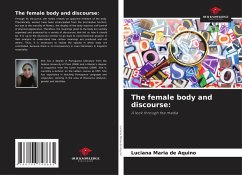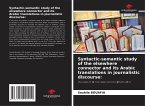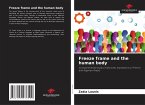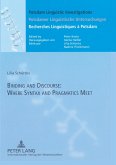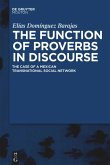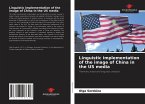Through its discourse, the media reveals an apparent freedom of the body. Theoretically, women have been emancipated from the procreative function, but due to the morality of fitness, the display of the body requires self-control of physical appearance. Therefore, the meanings given to the body are socially organized and produced by a variety of discourses that tell us how it should be. It is up to the discourse scholar to go back to socio-historical aspects in their analysis to understand how certain meanings are produced and not others. Thus, it is necessary to realize the opacity in which texts are constituted, because there is no transparency or even literalness in linguistic materiality.
Bitte wählen Sie Ihr Anliegen aus.
Rechnungen
Retourenschein anfordern
Bestellstatus
Storno

